Spesolimab Therapeutic Cheat Sheet
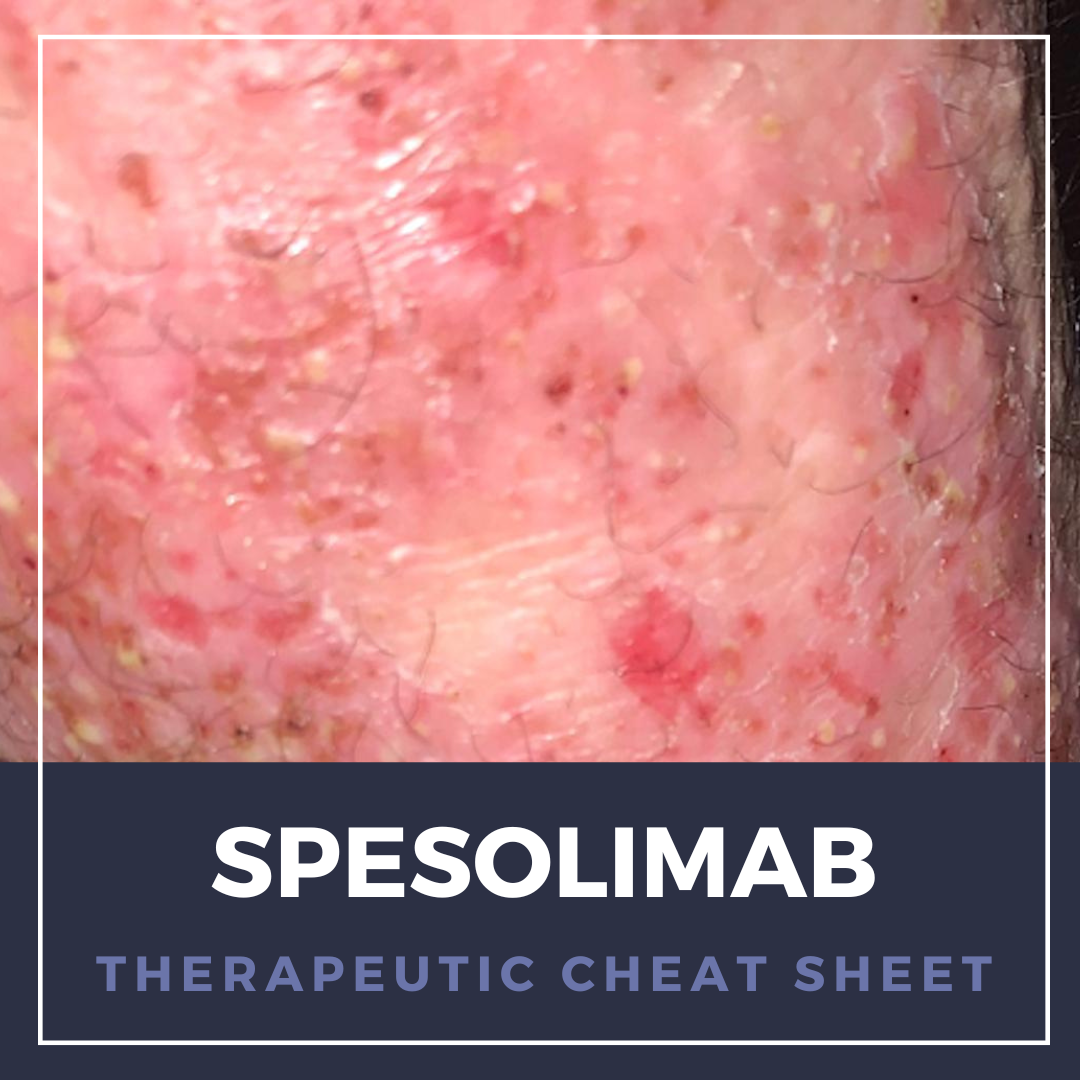 Generalized pustular psoriasis (GPP) is a rare, autoinflammatory condition, with acute, severe flares of diffuse sterile pustules and systemic symptoms that can be life-threatening. Historically, cyclosporine, methotrexate, retinoids, and biologics modulating the interleukin-17 (IL-17), IL-23, and tumor necrosis factor α pathways have been used off-label for management.1 Aberrant IL-36 signaling …
Generalized pustular psoriasis (GPP) is a rare, autoinflammatory condition, with acute, severe flares of diffuse sterile pustules and systemic symptoms that can be life-threatening. Historically, cyclosporine, methotrexate, retinoids, and biologics modulating the interleukin-17 (IL-17), IL-23, and tumor necrosis factor α pathways have been used off-label for management.1 Aberrant IL-36 signaling …
 Generalized pustular psoriasis (GPP) is a rare, autoinflammatory condition, with acute, severe flares of diffuse sterile pustules and systemic symptoms that can be life-threatening. Historically, cyclosporine, methotrexate, retinoids, and biologics modulating the interleukin-17 (IL-17), IL-23, and tumor necrosis factor α pathways have been used off-label for management.1 Aberrant IL-36 signaling …
Generalized pustular psoriasis (GPP) is a rare, autoinflammatory condition, with acute, severe flares of diffuse sterile pustules and systemic symptoms that can be life-threatening. Historically, cyclosporine, methotrexate, retinoids, and biologics modulating the interleukin-17 (IL-17), IL-23, and tumor necrosis factor α pathways have been used off-label for management.1 Aberrant IL-36 signaling … 

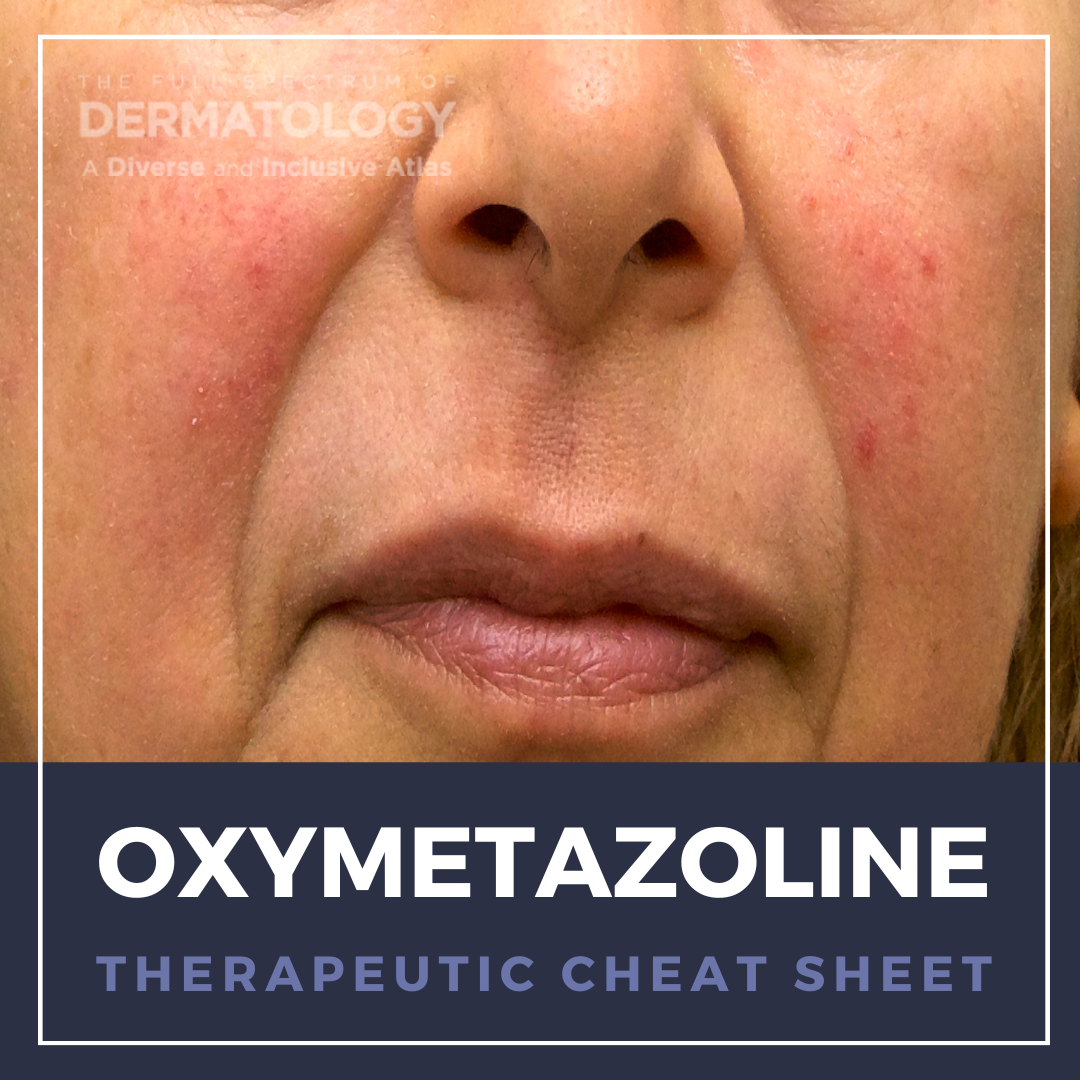 Oxymetazoline is an adrenoreceptor agonist which is FDA-approved for dermatologic conditions including persistent facial erythema in rosacea and blepharoptosis. Functioning primarily as a vasoconstrictor with additional anti-inflammatory properties, oxymetazoline targets the sustained vasodilated state of cutaneous blood vessels in rosacea by inducing vasoconstriction and reducing the persistent f …
Oxymetazoline is an adrenoreceptor agonist which is FDA-approved for dermatologic conditions including persistent facial erythema in rosacea and blepharoptosis. Functioning primarily as a vasoconstrictor with additional anti-inflammatory properties, oxymetazoline targets the sustained vasodilated state of cutaneous blood vessels in rosacea by inducing vasoconstriction and reducing the persistent f … 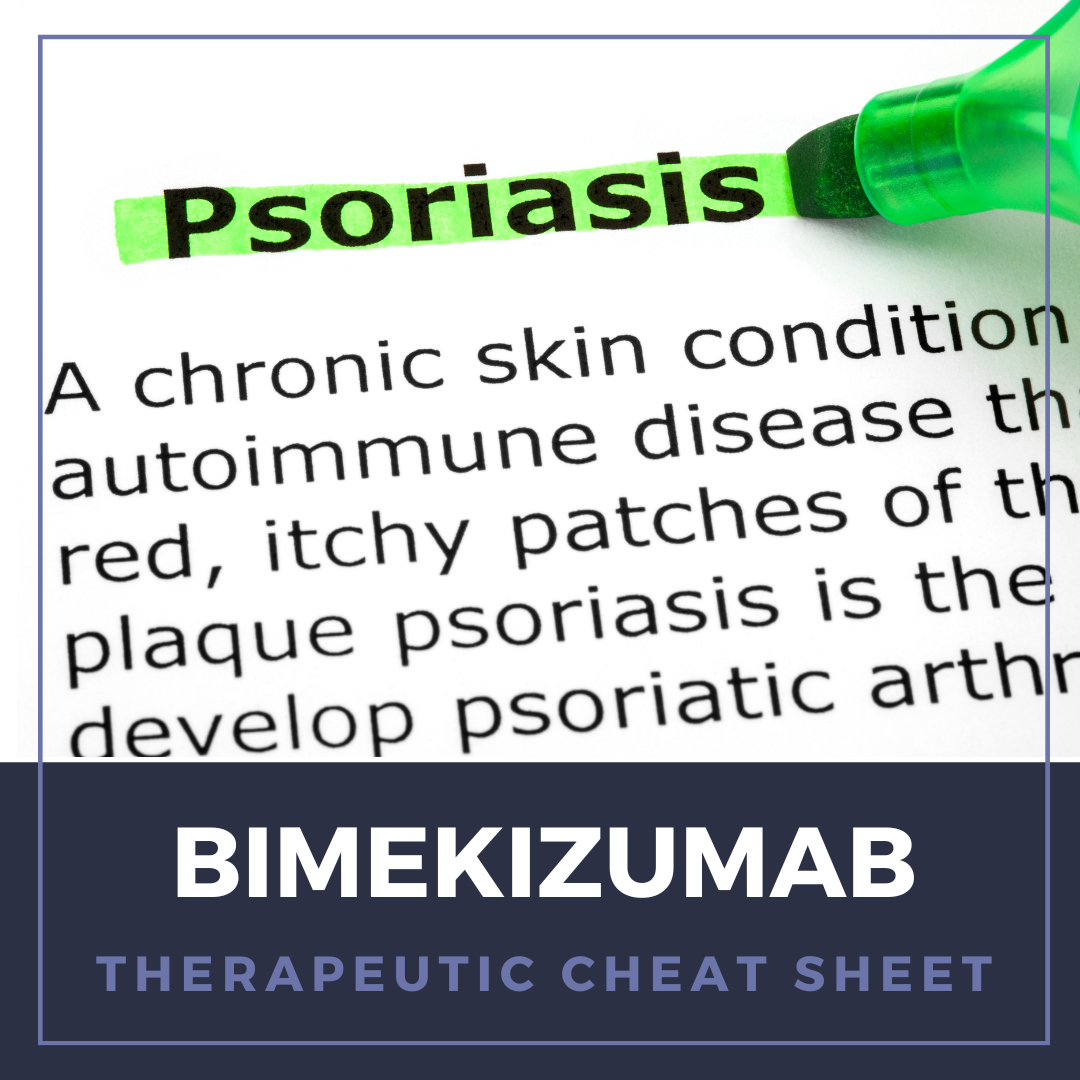 Bimekizumab (Bimzelx®) is a new injectable medication FDA approved for plaque psoriasis. It is the first and only FDA approved IL-17A and IL-17F inhibitor for this disease, but is also being used as an off-label option for other conditions including psoriatic arthritis and hidradenitis suppurativa. This Therapeutic Cheat Sheet will focus on the on and off label uses of bimekizumab.
Bimekizuma …
Bimekizumab (Bimzelx®) is a new injectable medication FDA approved for plaque psoriasis. It is the first and only FDA approved IL-17A and IL-17F inhibitor for this disease, but is also being used as an off-label option for other conditions including psoriatic arthritis and hidradenitis suppurativa. This Therapeutic Cheat Sheet will focus on the on and off label uses of bimekizumab.
Bimekizuma … 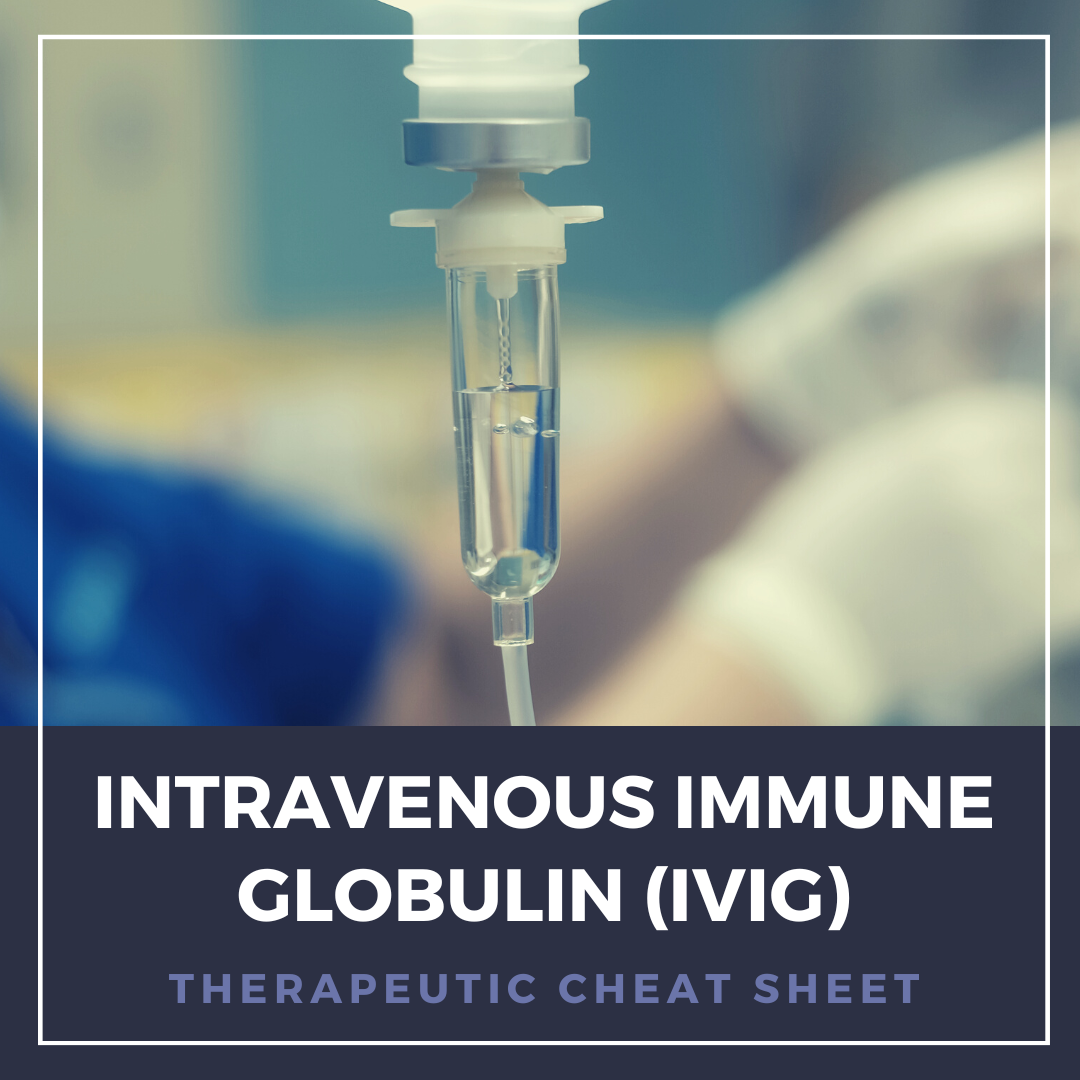 Intravenous immune globulin (IVIG) is a concentrate of pooled immunoglobulins derived from plasma donors. Its unique mechanism of action expands the utility of the medication to a variety of conditions. We continue our series, Therapeutic Cheat Sheet, with a closer look at IVIG, which is FDA-approved for the treatment of dermatologic conditions including dermatomyositis, Kawasaki disease, ITP, and …
Intravenous immune globulin (IVIG) is a concentrate of pooled immunoglobulins derived from plasma donors. Its unique mechanism of action expands the utility of the medication to a variety of conditions. We continue our series, Therapeutic Cheat Sheet, with a closer look at IVIG, which is FDA-approved for the treatment of dermatologic conditions including dermatomyositis, Kawasaki disease, ITP, and … 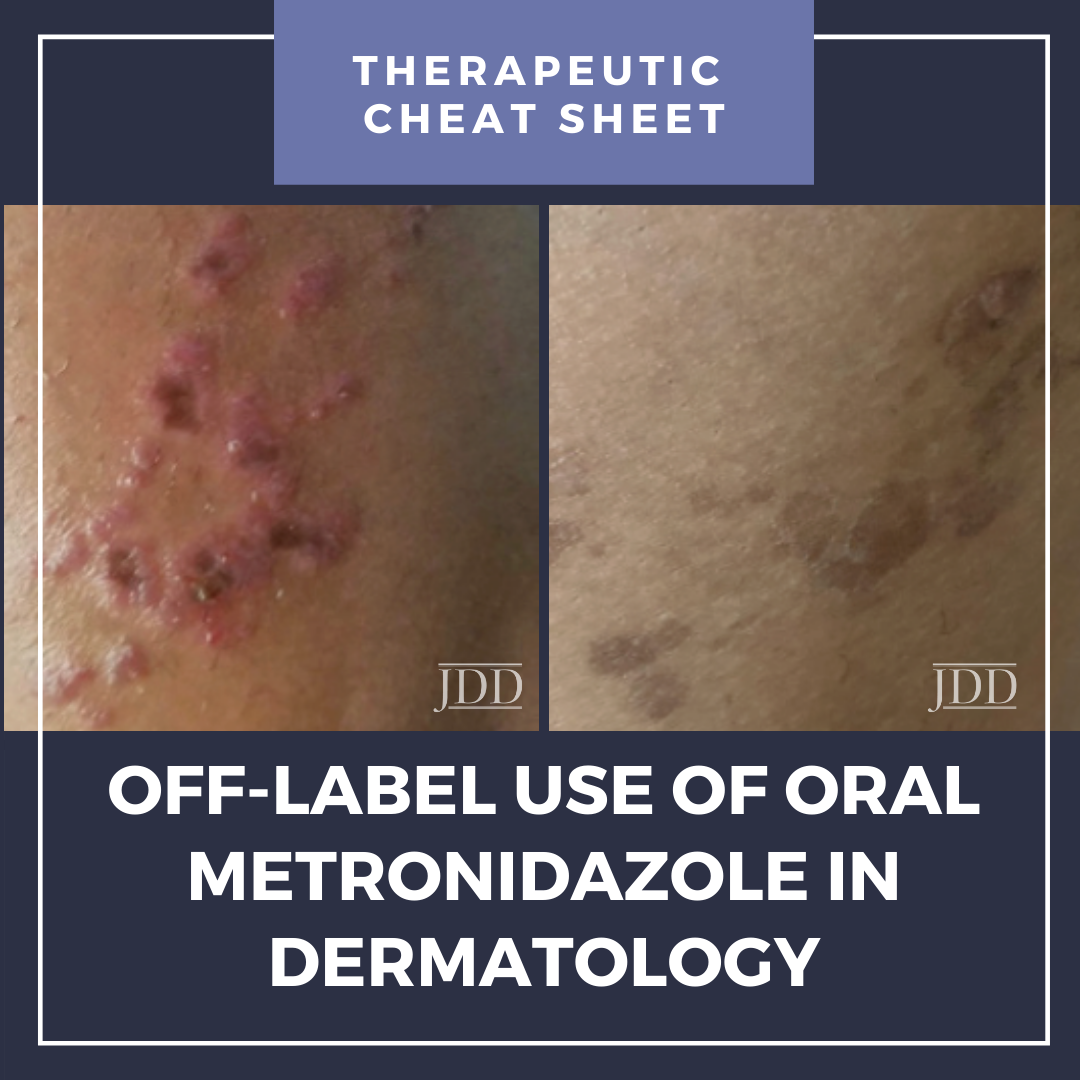 While we have an increasing armamentarium of biologic agents and targeted systemic medications for certain dermatologic conditions such as psoriasis or atopic dermatitis, treatment options are still limited for a litany of other inflammatory cutaneous disorders. Additionally, when discussing therapeutic options, patients often opt for medications that are established, safe, well-tolerated and mini …
While we have an increasing armamentarium of biologic agents and targeted systemic medications for certain dermatologic conditions such as psoriasis or atopic dermatitis, treatment options are still limited for a litany of other inflammatory cutaneous disorders. Additionally, when discussing therapeutic options, patients often opt for medications that are established, safe, well-tolerated and mini …